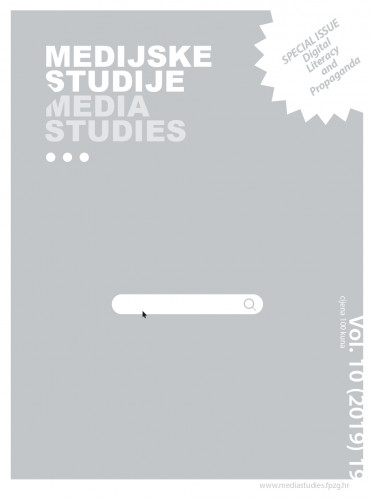The recent increase in usage of concepts such as ‘fake news’ or ‘post-truth’ reveals the importance of digital literacy especially on social media. In the digital era, people’s views on different topics are attempted to be manipulated with disinformation and fake news. Fake content is rapidly replacing the reality among new media users. It is stated with concepts such as ‘filter bubbles’ and ‘echo chambers’ that there is a greater tendency for people to be fed with content that is ideologically appropriate to their own views and to believe in fake news in this content. This article analyzes the structure and functioning of fact-checking organizations in the context of preventing propagation of fake news and improving digital literacy. The research is based on content analysis of verification activities of the fact-checking organization Teyit.org, which is a member of International Fact-Checking Network in Turkey, between January 1 and June 31, 2018. By conducting in-depth interviews with the verification team, propagation of fake news on social networks, fact-checking processes and their methods of combating fake news are revealed. Our article found that fake content spreading specifically through the Internet predominantly consists of political issues.; Sve veća upotreba pojmova kao što su „lažne vijesti“ ili „post-istina“ otkriva koliko je važna digitalna pismenost, osobito na društvenim mrežama. U digitalnoj eri mišljenja ljudi o pojedinim temama pokušavaju se mijenjati dezinformacijama i lažnim vijestima, pa korisnici novih medija sve više prihvaćaju lažne vijesti kao stvarnost. Pojmovi kao što su „mjehurići filtri“ (engl. filter bubbles) i „komore odjeka“ (engl. echo chambers) ukazuju na tendenciju da se ljude hrani sadržajem koji je ideološki u skladu s njihovim pogledima i koji podržava lažne vijesti. Ovaj rad analizira strukturu i funkcioniranje organizacija za provjeru činjenica u kontekstu prevencije propagiranja lažnih vijesti i poboljšanja digitalne pismenosti. Istraživanje je temeljeno na analizi sadržaja verifikacijskih aktivnosti organizacije za provjeru činjenica Teyit.org u Turskoj, članice Međunarodnog udruženja za provjeru činjenica, i to tijekom šest mjeseci, od 1. siječnja do 31. lipnja 2018. S članovima tima za provjeru činjenica provedeni su dubinski intervjui kako bi se otkrili procesi provjere činjenica i metode za borbu s lažnim vijestima. Ovaj rad pokazuje da se lažni sadržaj koji se širi internetom u najvećoj mjeri tiče politike.
Sažetak

 Medijske studije : Media studies : 10,19(2019) / glavni urednik Igor Kanižaj.
Medijske studije : Media studies : 10,19(2019) / glavni urednik Igor Kanižaj.